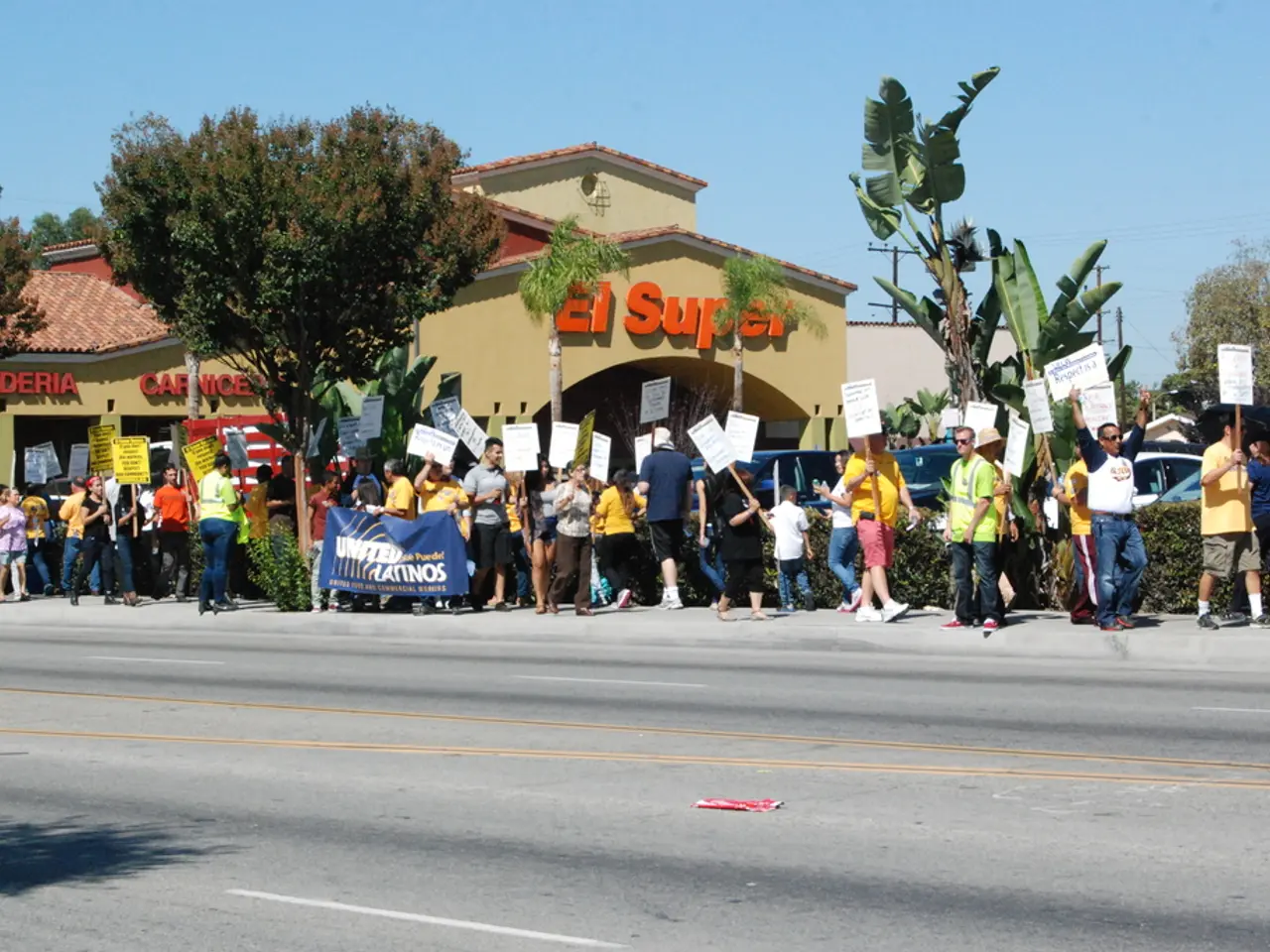Campaign Security Aid for Local Election Contenders
In a significant move to ensure the safety and security of election candidates, dedicated police officers, known as Force Elected-Official Advisers (FEOAs), are now stationed in all forces across the country. This is the first time such a comprehensive approach has been implemented, aiming to provide a robust response to any incidents of corruption, fraud, or intimidation during the elections.
With nominations for candidacy now closed, FEOAs are making contact with the returning officers in their respective regions to share the contact details of the candidates. Each candidate will receive security advice and guidance from their local police force, ensuring they are well-equipped to navigate potential risks during the campaign period.
Enhanced security measures for local election candidates typically include physical security devices such as locks, alarm systems, motion detectors, security cameras, structural upgrades like wiring, lighting, gates, doors, and fencing, hiring security personnel, and employing cybersecurity software, devices, and services. Candidates running for federal office in the United States, for example, may use campaign funds to pay for these security measures to address dangers or threats linked to their status as candidates or officeholders, even without having to demonstrate specific threats.
Several states have begun allowing campaign funds to be used for security spending, reflecting recognition of political violence risks at the state level as well. Candidates seeking security advice and guidance online can access resources from organizations specializing in election security. The Elections Group and the National Conference of State Legislatures (NCSL) are examples of such organizations, providing guides and quick reference materials on election safety, security procedures, and law enforcement coordination during elections.
The Federal Election Commission (FEC) websites also provide summaries of rules about using campaign funds for security expenses, giving candidates regulatory guidance on paying for security costs. However, it is important to note that the specific rules and regulations may vary by country.
In light of the increased instances of abuse towards candidates and their teams, including last year's General Election, the Commission and police have developed guidance for candidates to understand actions that may constitute a criminal offence. Candidates are encouraged to read this guidance and attend security briefings.
The Security Minister has stated unequivocally that harassment and intimidation will not be tolerated during the election. Practical steps should be taken when campaigning to ensure safety. Candidates are advised to introduce themselves to their local police force and know their point of contact.
Moreover, the Jo Cox Foundation encourages all candidates to sign the Civility Pledge for a respectful campaign. FEOAs provide briefings on personal safety throughout the campaign period. A national network of trained officers has been established to respond to reports of corruption and fraud during elections.
As the local election campaign period has begun, it is crucial for candidates to remain vigilant and proactive in their approach to security. By following the advice and guidance provided, candidates can help create a safer and more secure environment for everyone involved in the democratic process.
- The enhanced security measures for local election candidates include not only physical security devices but also the stationing of dedicated police officers, known as Force Elected-Official Advisers (FEOAs), who will share security advice and guidance and provide a robust response to incidents of corruption, fraud, or intimidation.
- With increased instances of abuse towards candidates and their teams, candidates should take practical steps to ensure safety by introducing themselves to their local police force, attending security briefings, and recognizing actions that may constitute a criminal offence, as outlined by the Commission and police.








